If you’re a parent, have you ever thought about how much free time you have compared to your spouse? According to research, wives generally have less leisure time. In families with kids under five, for example, husbands spend an average of 24.6 hours on leisure activities, while their wives spend only 20.1 hours.
Between work, childcare, and basic necessities like sleep, this wife has had no time to pursue her desired college degree. Yet her husband was optimistic, telling her that loads of people work full-time and go to school full-time. She took his comments as insensitive, because do people really do so while also being the primary parents?
A mother of two was asked by her husband to juggle parenting, work, and going to college full-time

Image credits: zinkevych/Freepik (not the actual photo)
Thinking the request was unreasonable, she asked people online to chime in
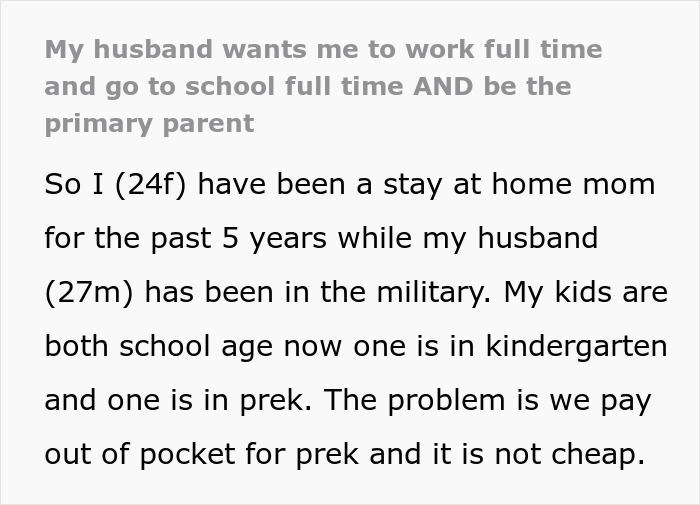
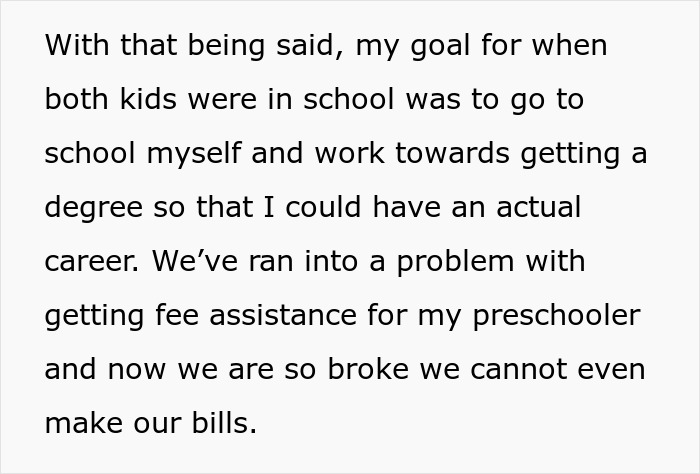
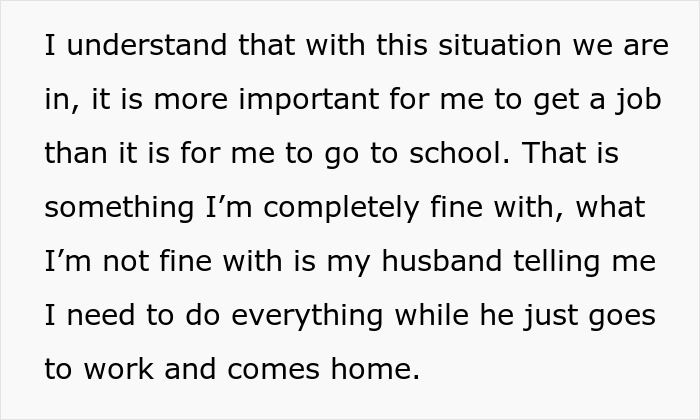
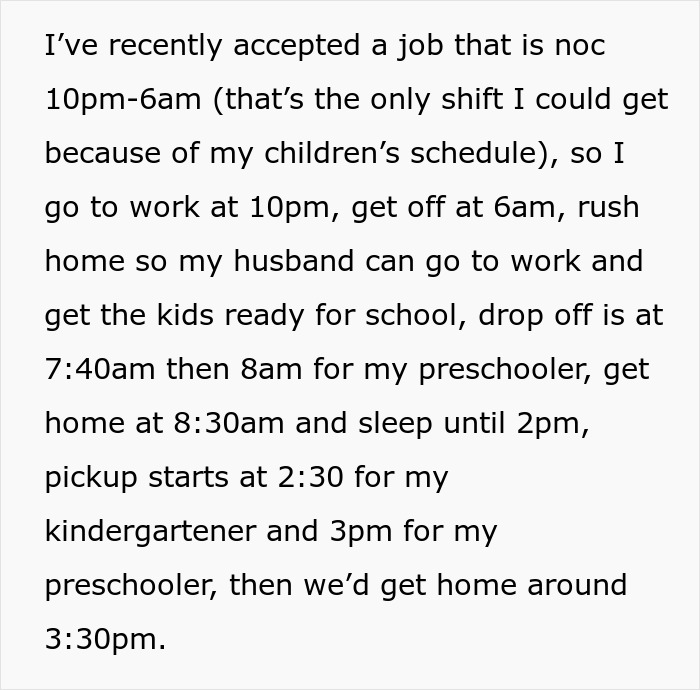
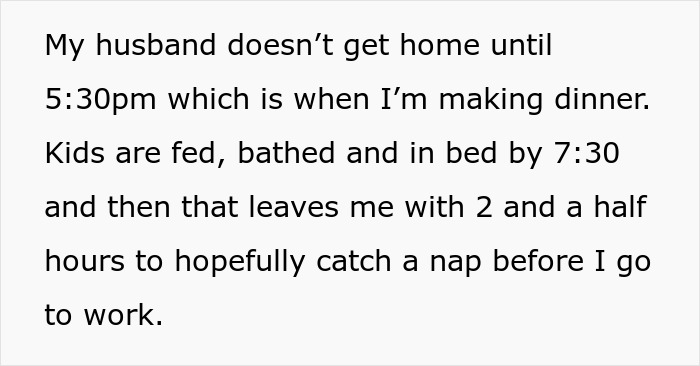


Image credits: Freepik (not the actual photo)
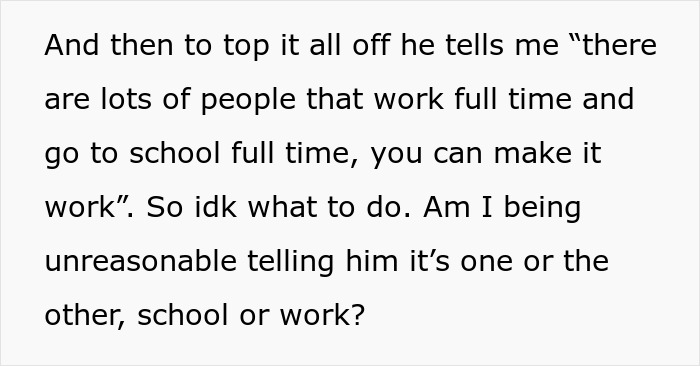
Image credits: Technical-Tip1114
Student parents have better academic results and are more driven than their peers

Image credits: yanalya/Freepik (not the actual photo)
Being a college student and a working parent isn’t mutually exclusive. In fact, according to the Institute for Women’s Policy Research, 26% of all undergraduate students in the U.S. are parents. Interestingly, 70% of those are also women. But just because a lot of people are trying to have it all, doesn’t mean it’s good for them, their families, their education, or their careers.
As if juggling parenting and studying isn’t enough, 44% of student parents also work full-time. Ironically, even if working parents are burdened with way more responsibilities than their student peers who don’t have children, they tend to be more diligent and achieve better academic results.
One study shows that one-third of working parents have a GPA of 3.5 or higher. In turn, 31% of their independent non-parent peers have similar GPAs, and the same goes for 26% of dependent non-parent students.
Experts attribute this to the fact that student parents are motivated by providing their children with as much financial security as they can. So, they spend more time studying, even though they have much less free time than their peers.
Program officer at the ECMC Foundation, Amber Angel, explains that students who are parents and work full-time are incredibly motivated and hard-working. “Student parents are some of the most driven learners you’ll find, but the lack of institutional support makes it incredibly difficult for them to thrive, and they often feel like they exist in the margins of campus life.”
Some colleges even have no idea how many student parents they have, and this lack of data signals a lack of commitment to help parents on an institutional level. “That sense of invisibility only compounds the struggles these students already face and reinforces the perception that they don’t belong,” Angel points out.
However, they experience a poverty of both time and money

Image credits: Freepik (not the actual photo)
Together with feelings of isolation, student parents face other hardships as well. The co-director of the docuseries Raising Up: A Student Parent Film Series and former college admissions officer, Jaye Fenderson, says that there are three other common problems student parents face:
A survey conducted by the research firm Trellis in 2023 shows that 66% of parenting students work 40 or more hours a week. And that’s on top of their college and parenting duties! In turn, only 24% of their nonparent peers report working similar hours.
Another 2021 study found that parents with children under the age of six “had significantly higher time poverty than other groups.” However, they also spent the most time doing coursework; of course, at the expense of their free time.
When we put all that data together, it’s not hard to see why dropout rates are high among working parents: a whopping 52% actually don’t ever graduate. One study even looked into how many hours they have for studying compared to their nonparent peers. Apparently, students without children have 21 free hours in a day. Parents, on the other hand, only have 10, during which they’re expected to sleep, eat, and study.
Sounds superhuman? Perhaps because it is. And that’s why even if “most people work and study full-time,” that doesn’t mean they’re not burnt out, very likely to drop out, or sacrifice precious time with their kids.
“Why live with him if you are doing it all?” some commenters pondered, calling out the husband’s laziness


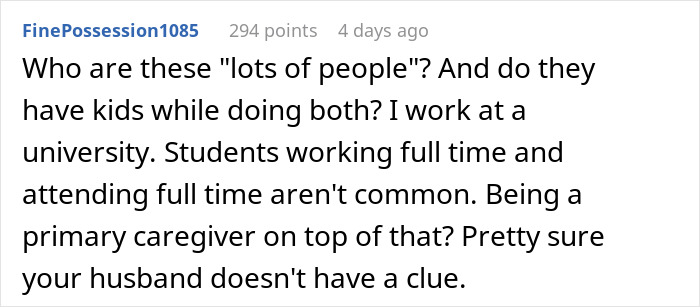
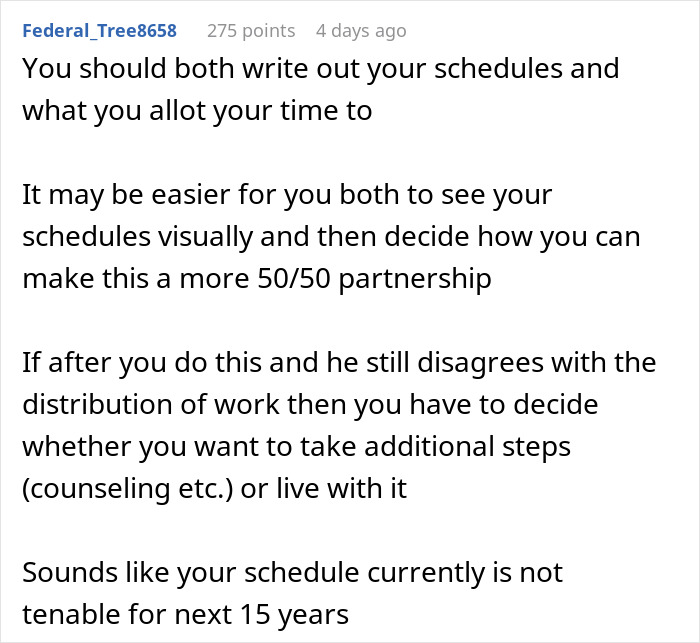
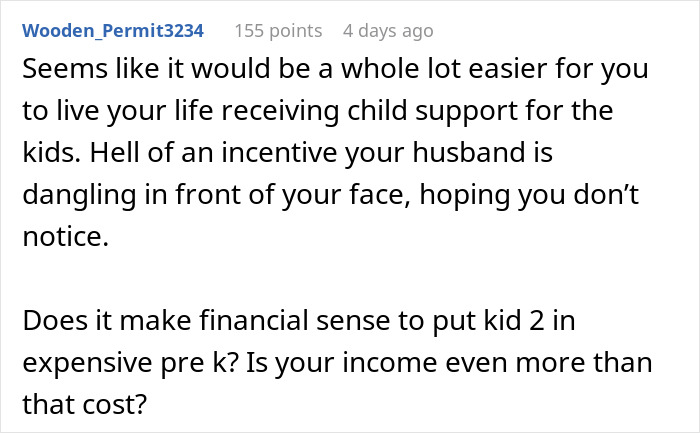





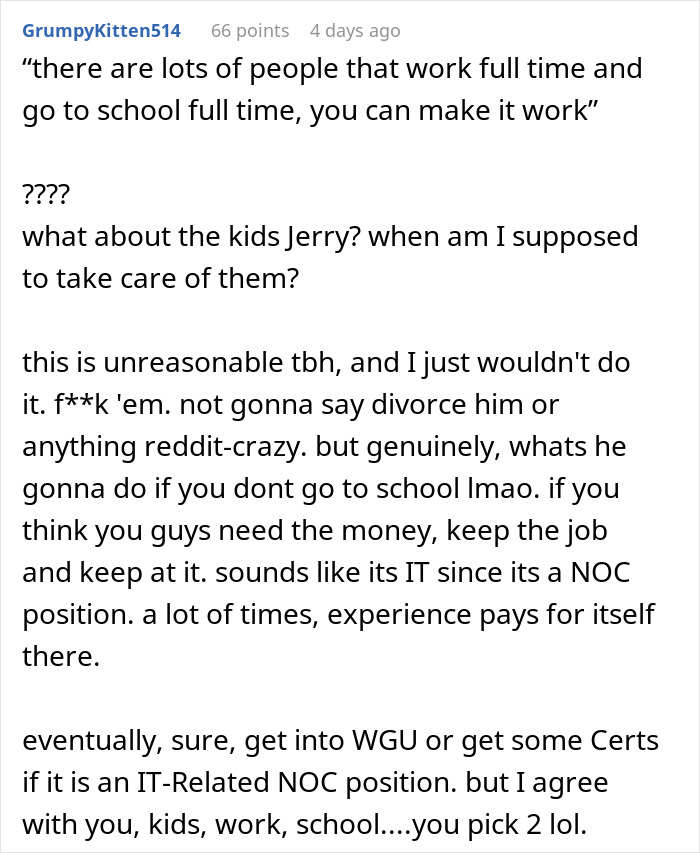

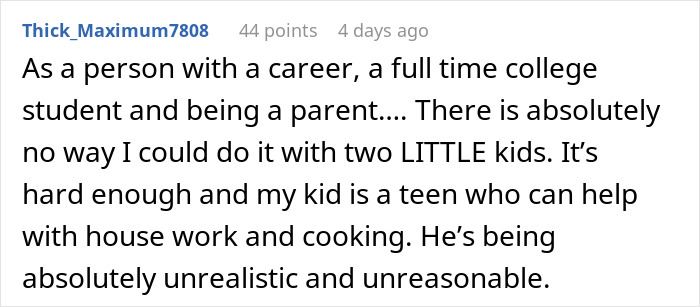


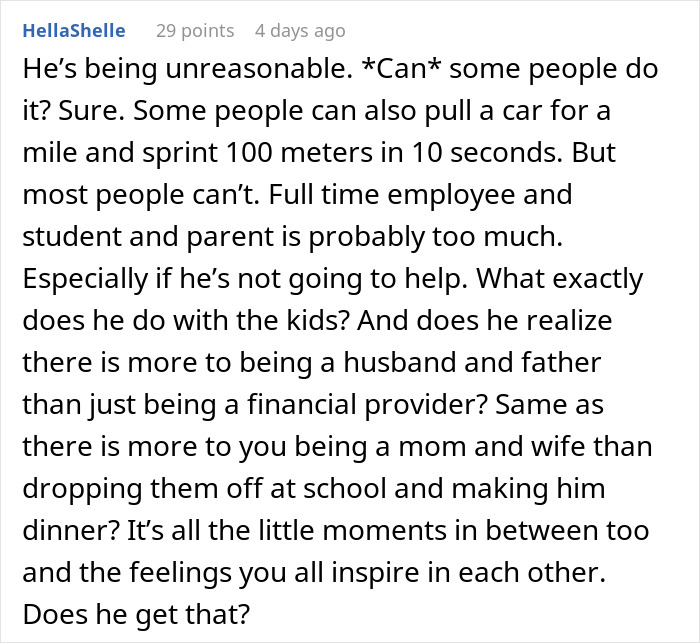


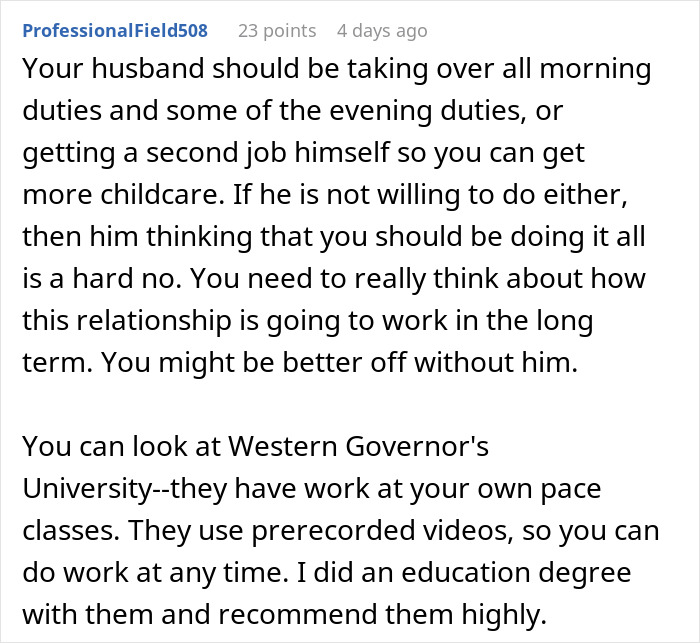
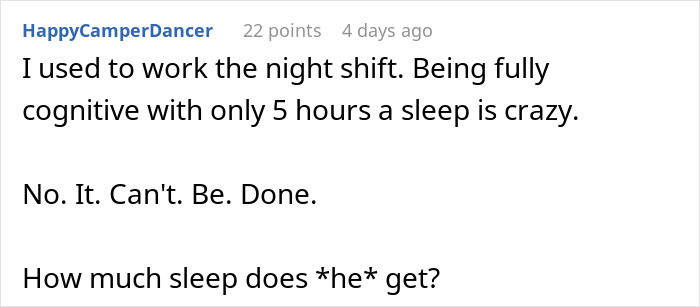


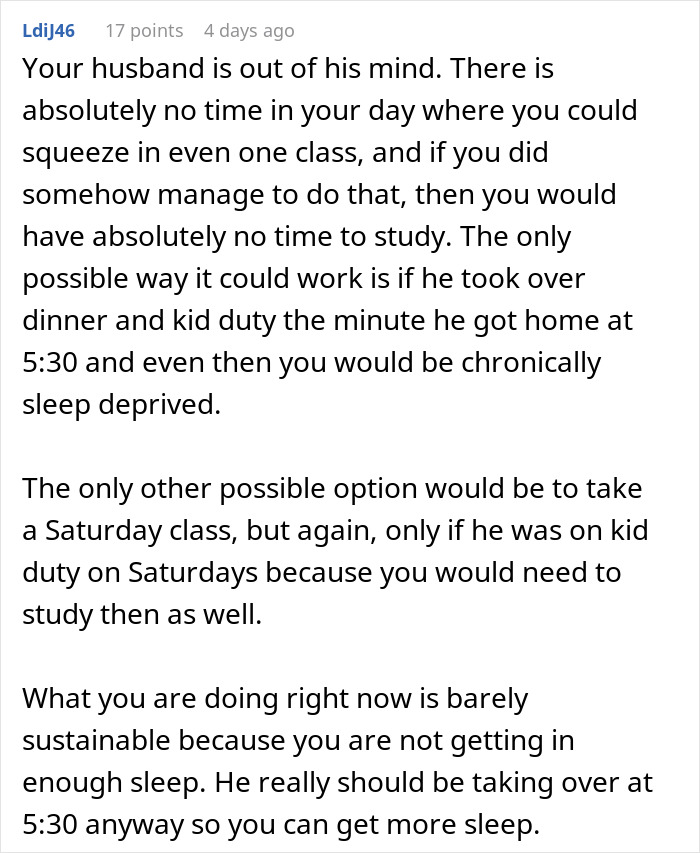


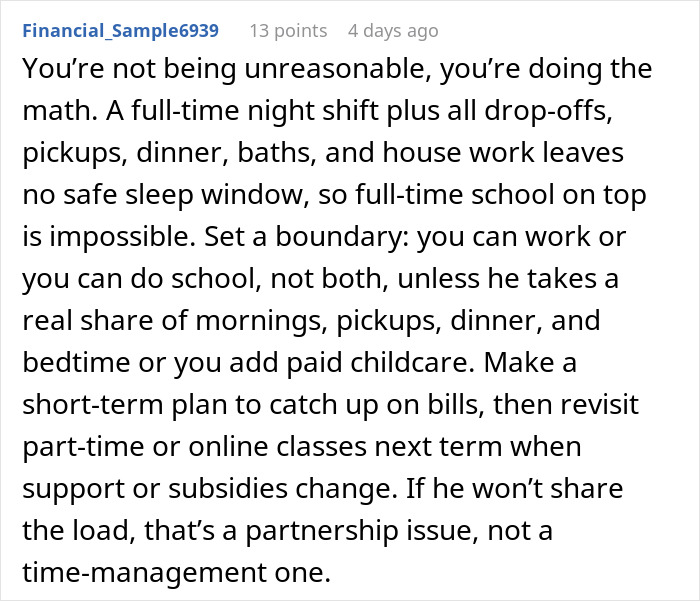



Others shared their stories of husbands not pulling their weight

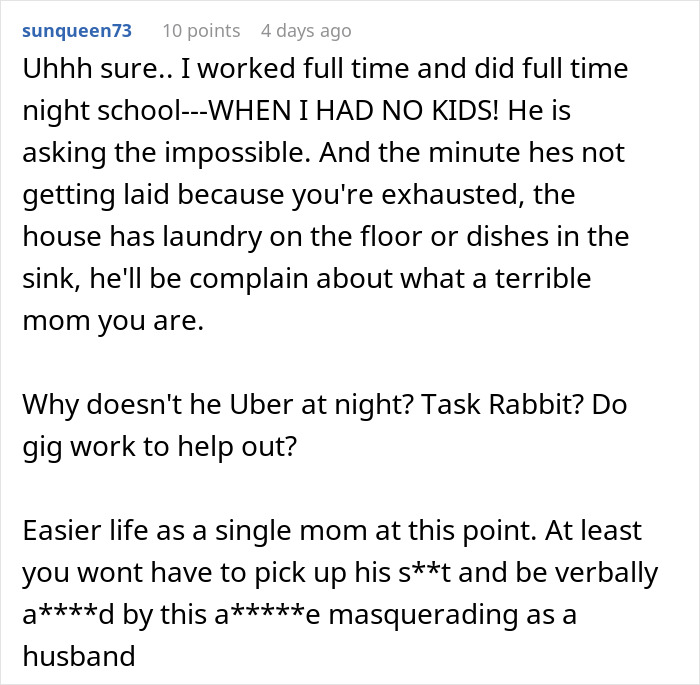
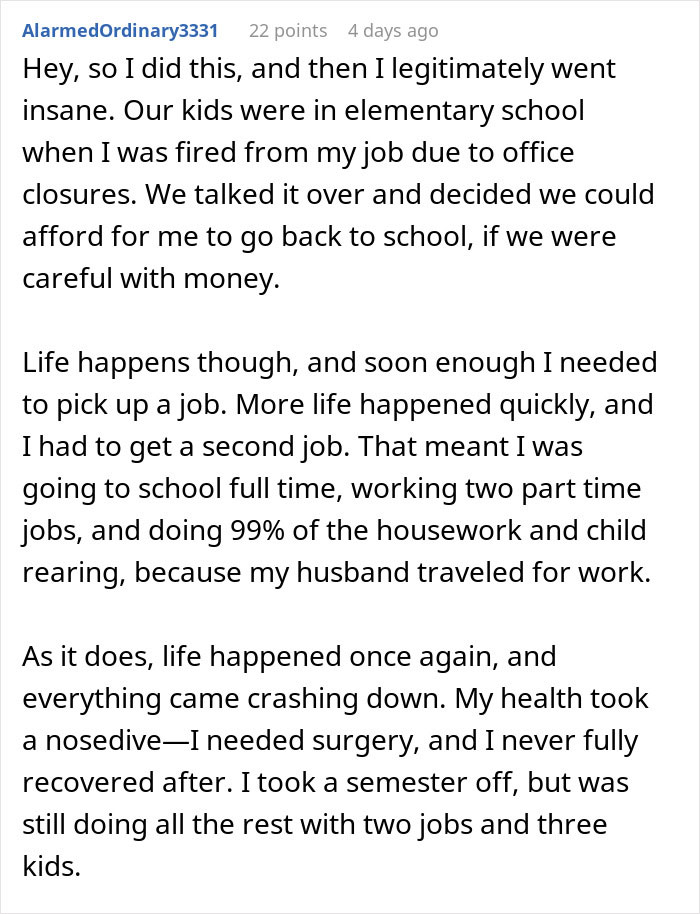
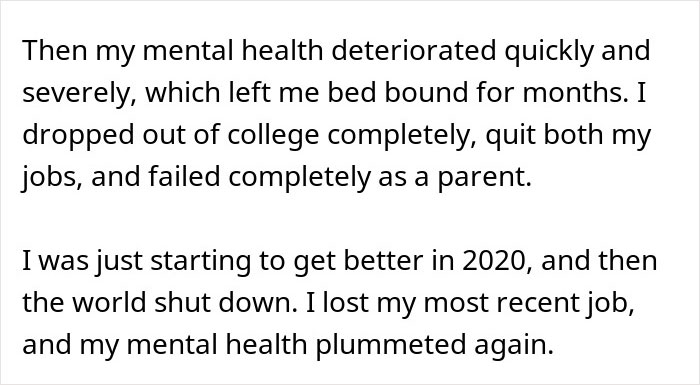
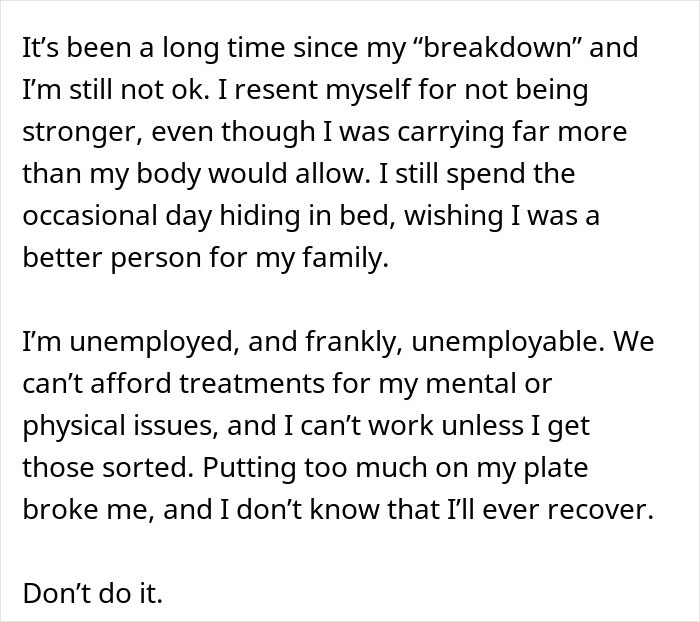
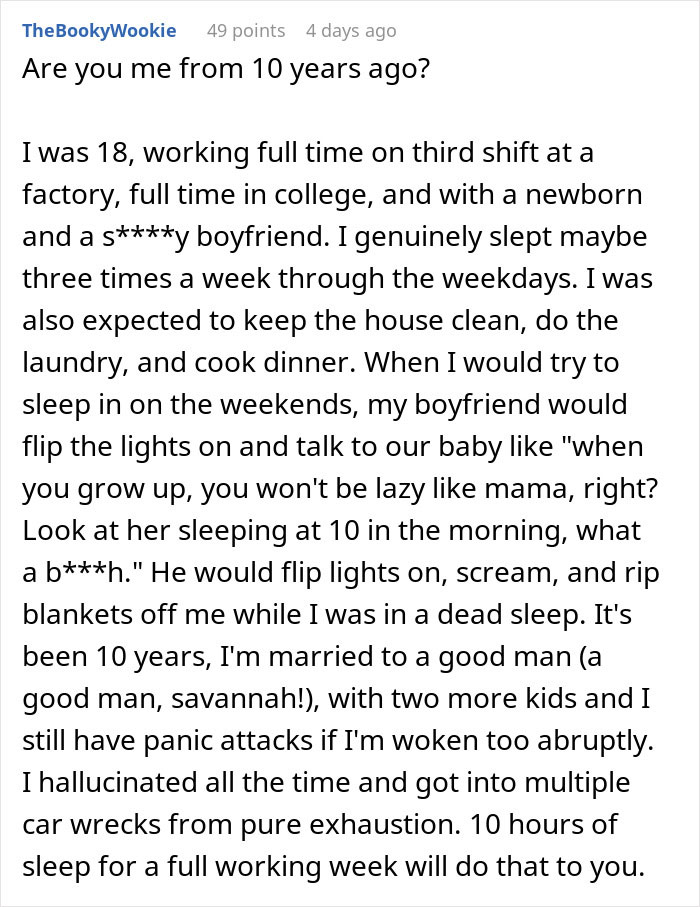

“I’m just going to go back to work until he gets out, then I will pursue a degree,” the woman posted in an update




Image credits: Frolopiaton Palm/Freepik (not the actual photo)
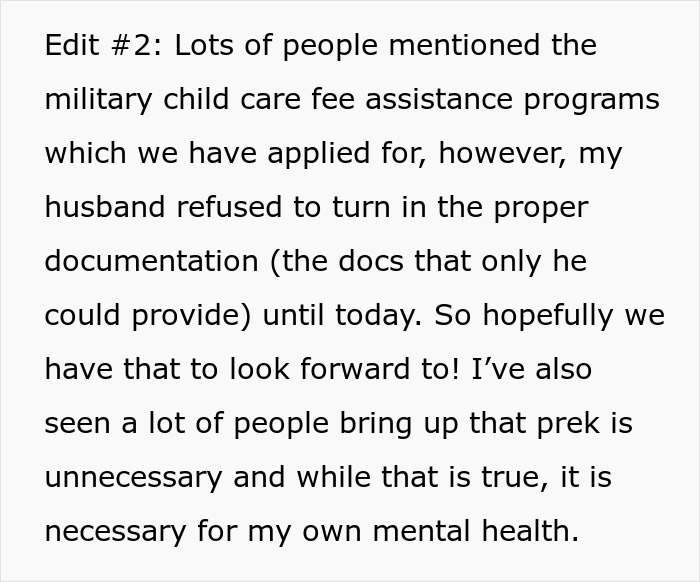
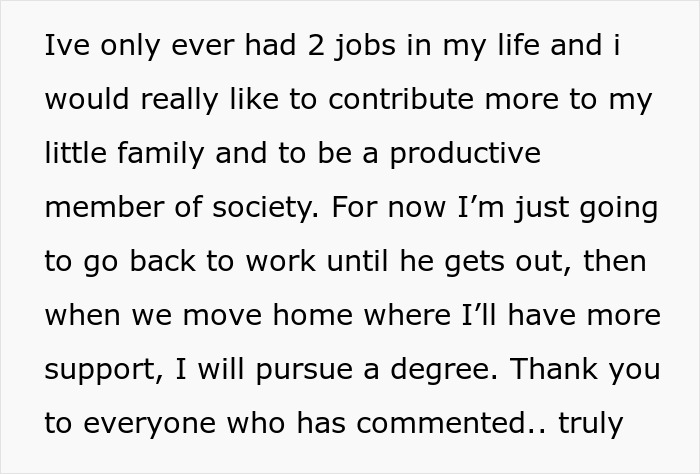
 Follow Us
Follow Us





